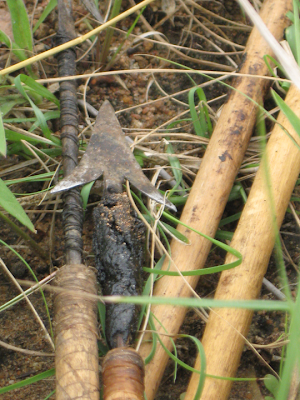I thought the previous post would be the last one. I guess I’m like Brett Favre. I happened across of piece of sheer and utter brilliance and I feel compelled to write about it.
There’s a building outside the place I’m staying in Uganda that has a large message printed on its side: “Avoid Morning Sex Africa” we would pass it laughing everyday on the way to work and speculate about its meaning. We came up with a few theories:
1. People are less likely to use condoms in the morning because they’re more lazy.
2. There is a greater chance of conception with morning sex as opposed to night sex.
3. If you cut out morning sex, that’s half the day, and maybe then you’re cutting out half the sex, which reduces the birth rate.
4. People should be at work in the morning making a living, not having sex.
As you can see none of these explanations were satisfactory. Most of them were wrong and nonsensical, but we all had our own theories and we would argue them on the way to work.
I’m leaving pretty soon and I was too curious to go home without knowing. I went into the shop to ask what the sign meant. They were selling large paintings. The artist was there but he wouldn’t give me a strait answer about the meaning of the sign. He told me that the shop was owned by Kibi, (pronounced “Chee-bee”) the man is the foreman of the painting I’ve been doing. Kibi is a brilliant man. He grew up in a poor fishing village and now leads tourist groups. He reads Shakespeare and loves biographies. He just ran the London marathon and is one of the best conversationalists I’ve ever met. He picks your brain about everything you know, and so many interesting tourists come through the organization he’s amassed a store of knowledge about everything from shooting a rifle to the American tax system.
Kibi told me it means nothing. It has no medical, social, or cultural background. Kibi wanted to write something that would attract tourists to his shop. He told me he used to make up things to tell tourists who were passing through. People often photograph the shop and it’s been in foreign newspapers and on websites. And it doesn’t mean anything. It’s true though, we had been spending hours arguing with each other about the meaning of the sign. It’s the most brilliant marketing technique I’ve ever heard of.
I asked Kibi if it has helped business. He frowned and said not too much because he built the door on the wrong side and didn’t put any windows in the shop. He’s right—in all the time we spent arguing about the meaning we never thought about going into the shop. We didn’t even know it was a shop, it just looks like something that an NGO painted on a building.
I don’t know if I’ll be able to articulate this, but to me, this story sums up my view of Africa pretty well. There are many complicated layers to life here. There’s a basic layer of understanding, seeing the world around you through the prism of the worldview you’ve had growing up. When you do this a lot of things here look really confusing. You start rationalizing what you’re seeing, trying to make things make sense within your worldview. You can be satisfied with this or you can be curious and ask someone who actually knows. If you can find someone like that, you’ll find out that what you’re seeing makes a lot of sense, just not in the way you were thinking about it. You see the brilliance and agency of African people and the ways they’re adapting to Western influence. They’re incorporating it in their lives, changing it, using it. You’ve read about how African people all do this or don’t do that, but you start to see people in all their complexity, like a man who writes the perfect statement to get tourists curious, talking, and interested but builds a door on the opposite side from the road and puts no windows in his shop. It’s been an amazing and life-changing time. I’ve grown up. I’m definitely finished now, if you take anything away from this blogging project, remember to always avoid morning sex.






















